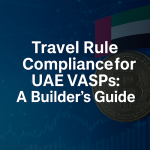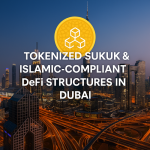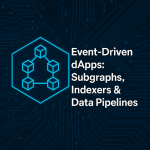Table of Contents
- Introduction
- Why Dubai’s Gig Economy Needs Decentralized Solutions
- How Decentralized Gig Marketplaces Work
- Key Advantages of a Decentralized Gig Marketplace in Dubai
- Blockchain’s Role in Building Trustless Gig Ecosystems
- Real-World Use Cases and Global Trends
- Challenges Facing Decentralized Gig Marketplaces in Dubai
- Dubai’s Regulatory Landscape and Web3 Opportunities
- Case Study: Hypothetical Web3 Freelancer DAO in Dubai
- FAQs About Decentralized Gig Marketplaces in Dubai
- Conclusion
- Why Partner with Websima
Introduction
Dubai’s gig economy is rapidly evolving, with thousands of freelancers, consultants, and independent creators contributing to the city’s vision of becoming a global digital hub. Yet, traditional gig platforms often impose high fees, centralized control, and limited global access—barriers that limit innovation and growth.
Enter the Decentralized Gig Marketplace Dubai model: a blockchain-powered ecosystem where freelancers and clients interact directly, transactions are trustless and transparent, and global participation is seamless.
As Dubai pushes its Dubai Economic Agenda D33 and strengthens VARA’s Web3 regulatory framework, the timing couldn’t be better to explore how decentralized freelance platforms can redefine the future of work.
Why Dubai’s Gig Economy Needs Decentralized Solutions
BREAKING
Dubai’s first tokenized real estate platform is now live on the XRP Ledger!
A major leap for real estate + crypto adoption!#XRPL #Dubai #Tokenization #Crypto pic.twitter.com/ayoNHeGEaQ
— Xaif Crypto| (@Xaif_Crypto) May 26, 2025
Dubai’s gig economy is thriving, thanks to:
- Rising demand for flexible work models.
- Expat-driven talent pools across tech, finance, marketing, and creative sectors.
- Dubai Internet City and Dubai Free Zones encouraging digital entrepreneurship.
However, existing centralized gig platforms (e.g., Upwork, Fiverr, and Freelancer.com) face critical challenges:
- High platform fees (up to 20% per transaction).
- Payment delays and currency conversion issues.
- Opaque dispute resolution processes.
- Limited control over client-freelancer relationships.
A Decentralized Gig Marketplace Dubai solves these pain points through smart contracts, crypto payments, as the government is piloting blockchain for cross-border remittances in UAE, and peer-to-peer governance.
How Decentralized Gig Marketplaces Work

A decentralized gig platform leverages blockchain technology to:
- Eliminate intermediaries: Freelancers and clients connect directly.
- Use smart contracts: Automate agreements and release funds upon task completion.
- Enable crypto-based payments: Ensure near-instant, borderless payouts.
- Introduce DAOs (Decentralized Autonomous Organizations): Gig workers govern platform rules and revenue distribution collectively.
Learn More: Dubai’s Vision for Web3 and Blockchain Economy
Key Advantages of a Decentralized Gig Marketplace in Dubai

1. Trustless Transactions
Smart contracts secure payments without middlemen:
- Clients lock funds in escrow.
- Freelancers receive automatic payment upon job completion.
2. Global Access & Borderless Payments
Dubai attracts freelancers worldwide. Decentralized marketplaces integrate crypto wallets and stablecoins, bypassing traditional banking hurdles. That is how digital wallets are accelerating crypto usage in Dubai.
3. Lower Costs, Higher Earnings
By removing third-party commissions, freelancers retain up to 100% of earnings—a significant competitive advantage over traditional platforms.
4. Transparent Reputation Systems
Blockchain-based ratings provide tamper-proof freelancer profiles and client feedback.
5. Integration With Web3 Ecosystems
Decentralized gig platforms integrate with:
- NFT-based identity systems for verifiable credentials.
- DeFi protocols for automated crypto-to-fiat conversions.
- Metaverse workspaces for remote collaboration.
Blockchain’s Role in Building Trustless Gig Ecosystems
Blockchain ensures:
- Transparency: Every job contract and payment is immutable.
- Security: Decentralized encryption protects client data and deliverables.
- Autonomy: Freelancers control how, when, and where they work.
Dubai’s early adoption of blockchain via Dubai Blockchain Strategy 2020 and VARA’s framework makes it the perfect environment for Web3-powered gig platforms.
Real-World Use Cases and Global Trends
Decentralized gig marketplaces are gaining momentum worldwide:
- Braintrust: A Web3-powered freelance marketplace with 0% commission.
- Ethlance: Pays freelancers directly in Ethereum with no platform fees.
- Opolis: Combines decentralized identity with benefits management for freelancers.
Dubai has the opportunity to replicate and localize these models, positioning itself as a global hub for blockchain-powered gig economies.
Challenges Facing Decentralized Gig Marketplaces in Dubai
- Regulatory Compliance
Adhering to VARA and Central Bank crypto rules is critical. - Mass Adoption
Traditional freelancers may resist shifting to crypto-based systems. - Scalability & UX
Blockchain-based platforms must match the seamless experience offered by Web2 marketplaces. - Taxation & Cross-Border Payments
Integration with UAE’s evolving tax regulations remains a priority.
Dubai’s Regulatory Landscape and Web3 Opportunities
Dubai is proactively positioning itself as a global Web3 hub:
- Virtual Assets Regulatory Authority (VARA) governs crypto and blockchain businesses.
- Free zones like Dubai Internet City and Dubai Multi Commodities Centre (DMCC) offer incentives for blockchain startups.
- Initiatives like Dubai Metaverse Strategy target $4 billion in economic value by 2030.
Reference: Dubai Metaverse Strategy 2030
Case Study: Hypothetical Web3 Freelancer DAO in Dubai
Imagine a Freelance DAO designed for Dubai:
- DAO Structure: Gig workers collectively govern the marketplace.
- On-Chain Payments: Clients pay in USDT or AED-backed stablecoins.
- NFT Identities: Freelancers use verifiable Web3 credentials.
- Revenue Sharing: DAO members vote on revenue allocation and platform upgrades.
Result: A fully decentralized gig ecosystem where freelancers own, control, and grow the platform collaboratively.
FAQs About Decentralized Gig Marketplaces in Dubai
1. Can freelancers in Dubai legally receive crypto payments?
Yes, within regulated frameworks approved by VARA and free zones.
2. Are decentralized gig platforms secure?
Yes. Blockchain ensures tamper-proof contracts and encrypted payments.
3. Can international freelancers join Dubai-based platforms?
Absolutely. Decentralized marketplaces support borderless global participation.
Conclusion
Dubai’s gig economy is at a transformational crossroads, and decentralized gig marketplaces are set to play a defining role in its future. By leveraging blockchain, smart contracts, and DAOs, these platforms empower freelancers and clients to connect directly, eliminate unnecessary intermediaries, and transact securely in a trustless environment.
For Dubai, this isn’t just about facilitating freelance work—it’s about establishing itself as a global leader in Web3-enabled economies. Backed by VARA’s regulatory framework and initiatives like the Dubai Metaverse Strategy, the emirate offers the perfect environment to build scalable, borderless platforms that attract talent and clients from all over the world.
As the demand for flexible, remote, and globalized work continues to rise, Decentralized Gig Marketplace Dubai solutions represent a future-proof opportunity for entrepreneurs, investors, and gig workers alike.
Why Partner with Websima
At Websima, we specialize in building decentralized gig marketplaces powered by smart contracts, DAOs, and Web3 identity systems. Whether you’re an entrepreneur, investor, or platform owner, we provide end-to-end blockchain development services to help you create trustless, borderless, and scalable solutions for Dubai’s growing gig economy.
Start your Web3 journey today!
Contact Websima and explore how we can design, develop, and launch your Decentralized Gig Marketplace in Dubai.





